Dan Tu
Bringing Stories Alive: Generating Interactive Fiction Worlds
Jan 28, 2020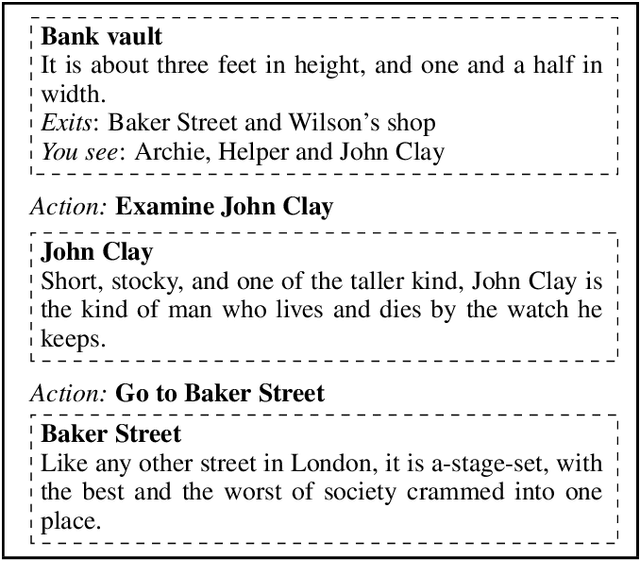
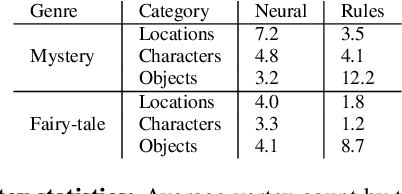
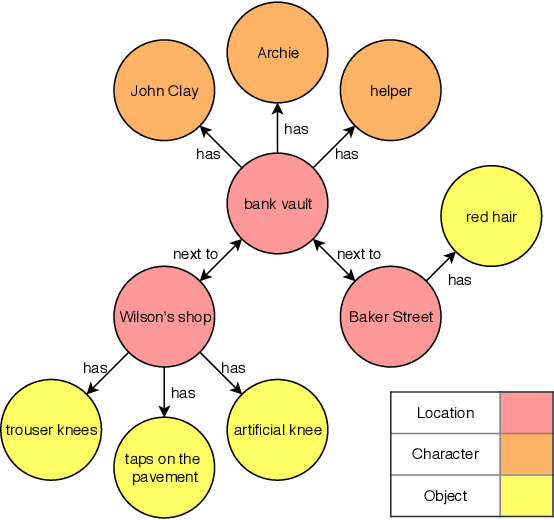

Abstract:World building forms the foundation of any task that requires narrative intelligence. In this work, we focus on procedurally generating interactive fiction worlds---text-based worlds that players "see" and "talk to" using natural language. Generating these worlds requires referencing everyday and thematic commonsense priors in addition to being semantically consistent, interesting, and coherent throughout. Using existing story plots as inspiration, we present a method that first extracts a partial knowledge graph encoding basic information regarding world structure such as locations and objects. This knowledge graph is then automatically completed utilizing thematic knowledge and used to guide a neural language generation model that fleshes out the rest of the world. We perform human participant-based evaluations, testing our neural model's ability to extract and fill-in a knowledge graph and to generate language conditioned on it against rule-based and human-made baselines. Our code is available at https://github.com/rajammanabrolu/WorldGeneration.
Blended Conditional Gradients: the unconditioning of conditional gradients
May 18, 2018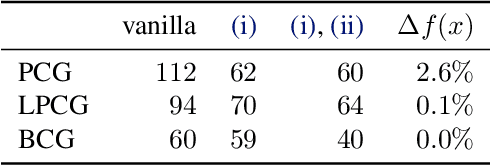
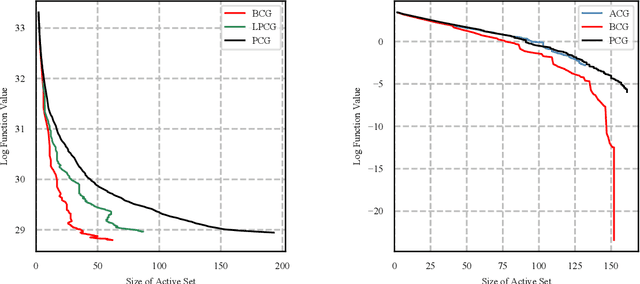
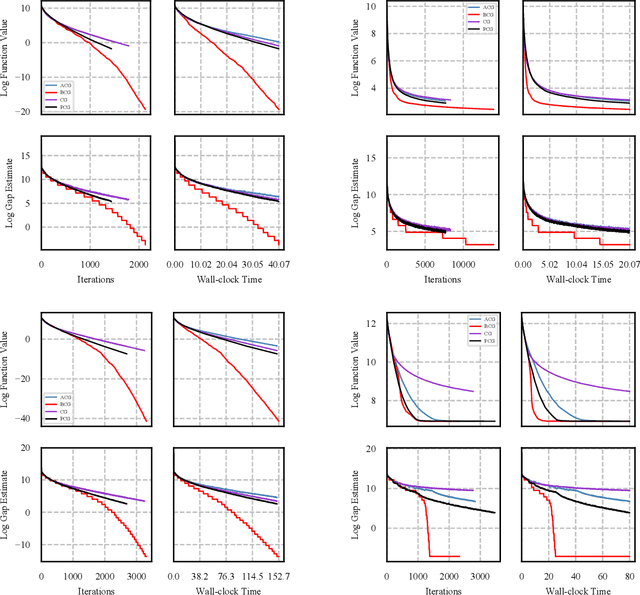
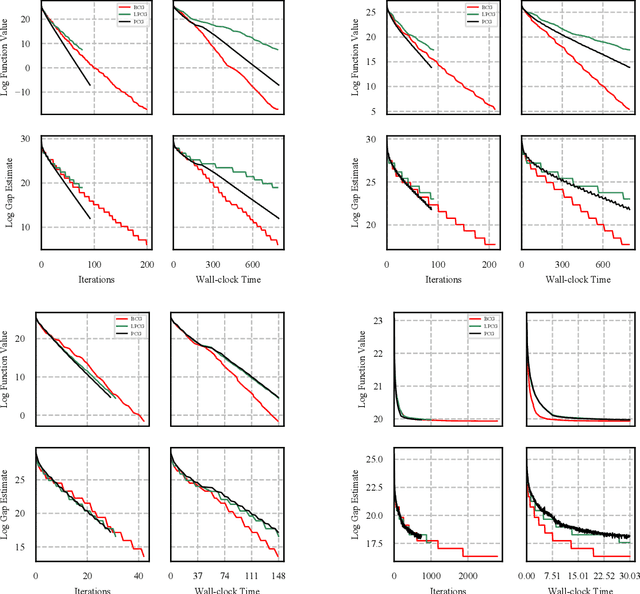
Abstract:We present a blended conditional gradient approach for minimizing a smooth convex function over a polytope $P$, that combines the Frank--Wolfe algorithm (also called conditional gradient) with gradient-based steps different from away steps and pairwise steps, however, still achieving linear convergence for strongly convex functions and good practical performance. Our approach retains all favorable properties of conditional gradient algorithms, most notably avoidance of projections onto $P$ and maintenance of iterates as sparse convex combinations of a limited number of extreme points of $P$. The algorithm decreases measures of optimality (primal and dual gaps) rapidly, both in the number of iterations and in wall-clock time, outperforming even the efficient "lazified" conditional gradient algorithms of [arXiv:1410.8816]. Nota bene the algorithm is lazified itself. We also present a streamlined algorithm when $P$ is the probability simplex.
 Add to Chrome
Add to Chrome Add to Firefox
Add to Firefox Add to Edge
Add to Edge